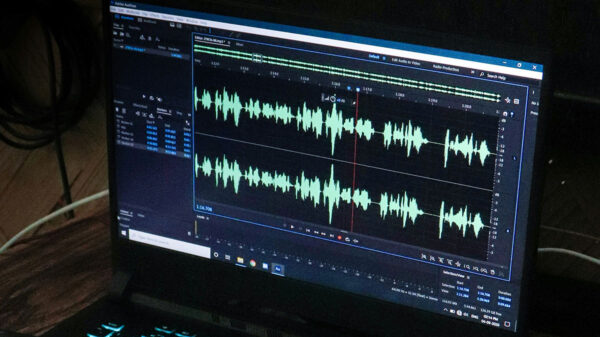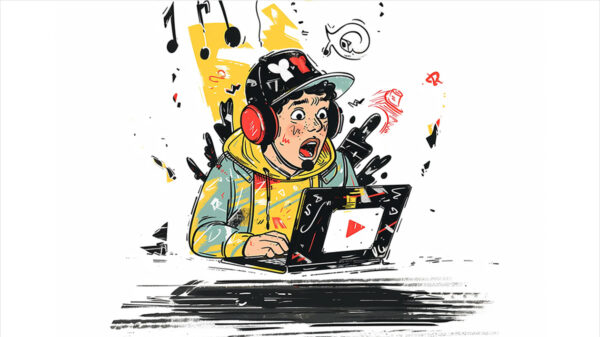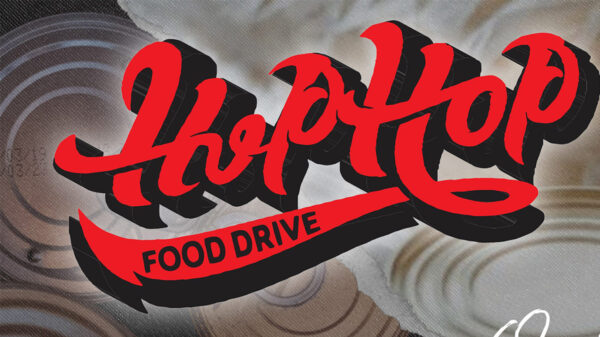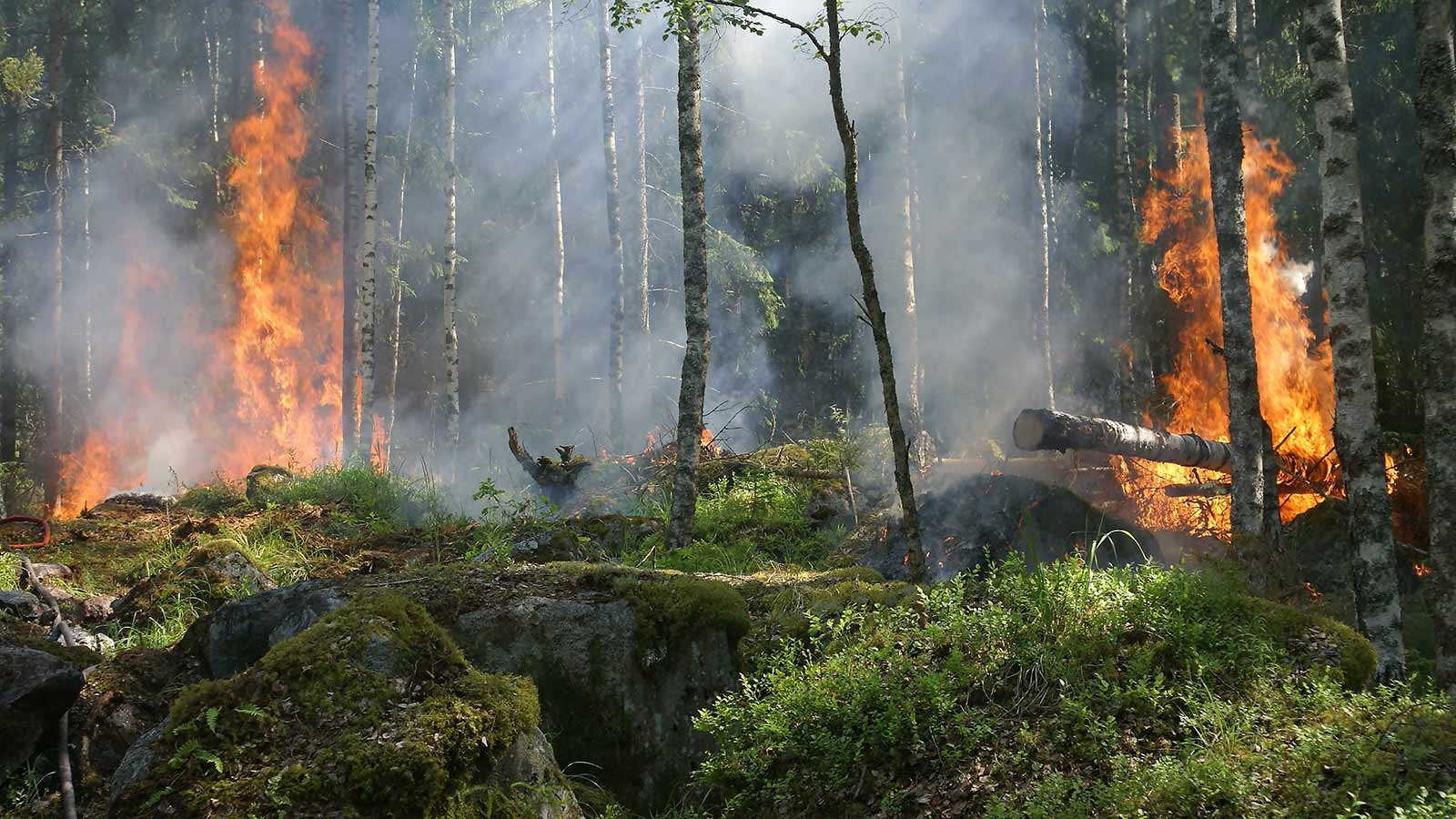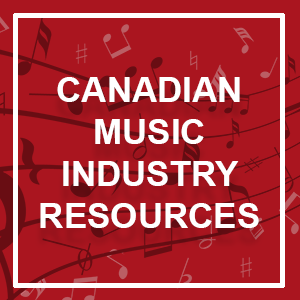Amid the wildfire crisis in the Northwest Territories and the Aug. 16 order to evacuate its capital city, Yellowknife, the outcry over Meta’s Canadian news block has reached new heights. The issue has become even more pressing as evacuees face challenges getting essential updates.
I was visiting Paulatuk, a remote part of N.W.T, almost 900 kilometres northwest of Yellowknife when the evacuation order was issued.
I was aware of the news ban on Facebook but I was also able to turn to CBC North’s radio broadcast for updates. CBC North moved its broadcast base from Yellowknife to Calgary to provide continued coverage throughout the unfolding situation.
Based on my recent personal experience in the region, I was reminded that although social media has been vital for disseminating crisis information, AM and FM radio still play an essential role. As well, there is a necessity for a diversity of media sources, especially in moments of crisis.
‘Reckless’ news-blocking in a crisis
Following the order to evacuate Yellowknife, many expressed their frustration with the news ban and called on Meta (formerly Facebook) to revoke its embargo of news in Canada so evacuees could access and share real-time updates in a rapidly evolving emergency.
News organizations reflected on the urgency and published a flurry of articles with headlines like “Canada demands Meta lift ‘reckless’ ban on news to allow fires info to be shared” and “Government calls on Meta to reverse ‘reckless’ news-blocking as wildfires force evacuations.”
Meta’s Canadian news embargo is the corporation’s response to Canada’s Online News Act, which passed in June. The federal government legislation may require large social media platforms to enter into revenue-sharing agreements with Canadian news publishers.
This new law has been divisive, with some lauding it as vital for preserving quality journalism and others arguing it’s a misguided approach, advocating alternative methods to achieve similar goals.
Social media plays a vital role
Meta’s news block is significant because it affects both Facebook and Instagram.
Although Meta has claimed “users don’t come to us for news,” there is little doubt that social media is an indispensable tool for many to stay connected on current events and to share information among friends and family — especially during emergencies.
Studies have shown that social media is vital for disseminating crucial information to the public during crisis situations. The ongoing block on news in Canada has made this sharing difficult.
Even with declared states of emergency in both the Northwest Territories and British Columbia, Meta has made no changes to its policy.
News and critical updates are still accessible by going directly to news publishers’ websites. For example, the Cabin Radio website, based in the Northwest Territories, remains a dependable and frequently updated information source for citizens, even though it is blocked on Facebook and Instagram.
‘Free-to-air’ broadcast radio
Other citizens have resorted to taking screenshots of news stories and then sharing these with their social networks on Meta’s platforms.
In more extreme scenarios, such as when fires disrupt critical infrastructure, including telecommunications, internet accessibility is compromised in many communities (except perhaps for those with satellite-based services). This underscores the fragility of internet-dependent communications during emergencies.
In the realms of engineering and emergency planning, the term “single point of failure” describes situations in which an entire system stops working when a lone component fails. Relying exclusively on social media or the internet exposes us to a kind of single-point of failure in our emergency communications system.
In fact, reading about the Meta news block may lead people to mistakenly assume that social media is the only source of information on the current wildfire situation in N.W.T. and Kelowna.
It’s not. We should not overlook the significance of “free-to-air” broadcast radio in delivering reliable and trustworthy information to citizens.
Variety of media sources
Broadcast radio has persevered, ensuring critical updates reach citizens.
During emergencies especially, “free-to-air” radio is a dependable and easily accessible source of timely information, particularly when internet and phone networks falter and when people are on the move, travelling between urban centres where there may be no internet service.
It’s not a matter of choosing between one or the other, but rather ensuring we don’t underestimate the lasting relevance of free-to-air radio as a form of “complementary redundancy.” This concept underscores the importance of relying on a blend of highly reliable systems like broadcast radio combined with the internet and social media.
The two systems can work hand-in-hand. The internet and social media may be somewhat less reliable during a crisis, but can nonetheless be exceptionally effective at sharing a rich variety of media content, including maps and interactive exchanges of information. This includes user-generated updates when there are no reporters or local media on the scene.
Highly reliable news source
As we look forward, we should not let our reliance on social media overshadow the continuing significance of free-to-air broadcast radio as a cost-effective, highly reliable information source.
AM radio, in particular, continues to play an important role for farmers and others in remote areas for market and weather reports, as well as emergency updates.
Recent decisions by several automobile manufacturers to phase out AM radio from cars has some lawmakers in the United States concerned. And as a result, a new bipartisan bill to ensure AM radio remains a standard feature in all new cars has been proposed.
We’ve come to rely on social media as a vital source of information during emergency events.
But Meta’s continued ban on news in Canada during the wildfire events in the Northwest Territories and British Columbia serves as a reminder of the enduring value of free-to-air broadcast radio, even in the digital age.
Written by Gordon A. Gow, Professor, Sociology/Media & Technology Studies, University of Alberta
This article is republished from The Conversation under a Creative Commons license. Read the original article.
![]()
5 Ways to Support HipHopCanada:
- Submit Your Music
- Follow Canadian Fresh (HipHopCanada’s Spotify Playlist)
- Follow us on Instagram
- Follow us on X (Twitter)
- Like us on Facebook







